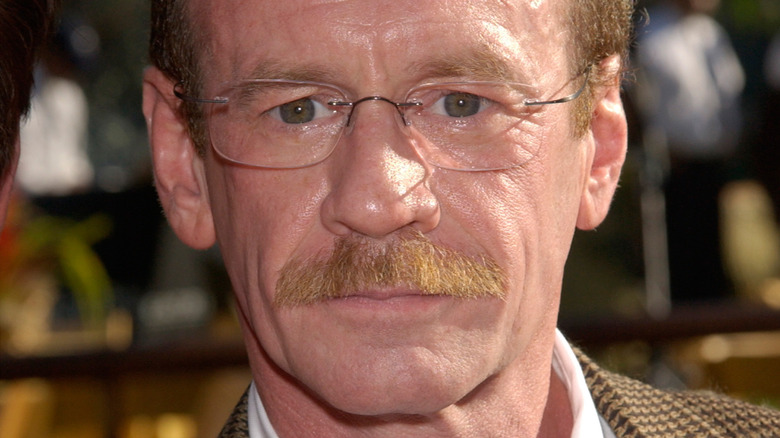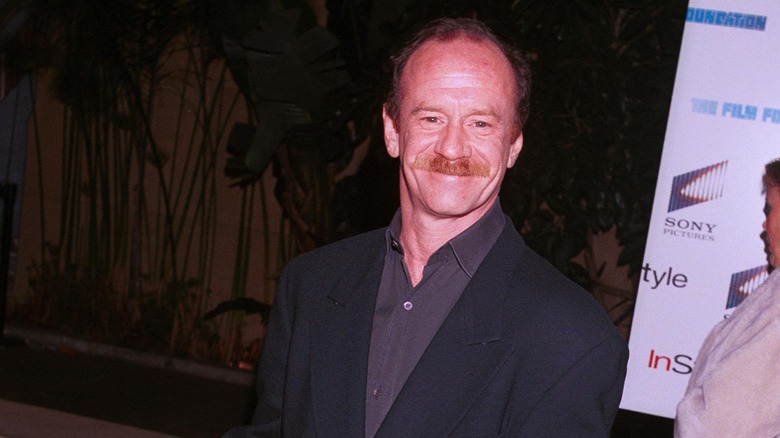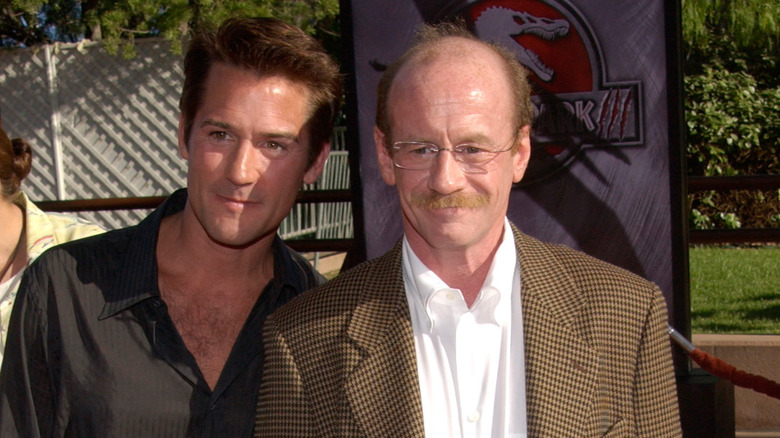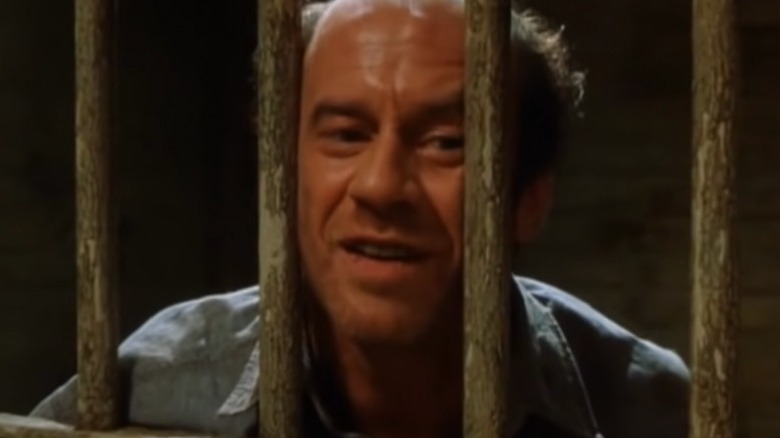The Tragic Death Of Michael Jeter From Waterworld
2021 has been full of surprises. There was Meghan Markle and Prince Harry's explosive interview with Oprah Winfrey, in which they lodged complaints of racism and abuse against the royal family. Then, a month later, there was the death of Prince Philip at the age of 99, after seven decades as the world's most powerful husband. On this side of the pond, Donald Trump fled to Florida and was impeached for a second time. On the brighter side, in the early months of 2021 countries began distributing the COVID-19 vaccines more efficiently and by April 1 in 5 Americans had received a dosage, per CNBC.
One of the most surprising turns of events of the year, though, was the meteoric rise of a B-List '90s movie starring Kevin Costner: "Waterworld." In April, the film hit Netflix and quickly landed on the top ten. House-bound social distancers couldn't get enough of the bizarre plot about a world in which the waterline rose and caused irreparable damage. As you might imagine, this is garnered a lot of attention from fans about what stars of the film are up to these days. Figuring out what Kevin Costner is doing was easy enough, but fans were saddened to learn that Micheal Jeter, who plays Old Gregor, had died years prior.
Michael Jeter's death was a surpise
Michael Jeter was more than just the star of "Waterworld." He also earned credits in other hits like "Fear and Loathing in Las Vegas," "Jurassic Park III," "The Money Pit," and "Sesame Street." Additionally, he won an Emmy for his role in "Evening Shade," a CBS drama. Sadly the Tennessee native wasn't around to see "Waterworld" become a cultural phenomenon in April 2021, because he died in 2003.
Jeter's death came as a surprise to those who knew him. According to an AP News report at the time, he was found unresponsive in his Hollywood home. Jeter was HIV positive, but was considered healthy at the time of his death. The actor was 50 years old.
Perhaps his most famous role was on "Sesame Street" as The Other Mr. Noodle. "Kids would recognize him and come running up to him, 'Mr. Noodle! Mr. Noodle,'" his publicist told the AP. "He really loved that." Jeter died in the midst of filming his final movie, "The Polar Express." Thankfully, they were was able to use the parts he filmed before his death to complete the movie. Jeter died a great actor known for his vibrant character work, but he almost spent his life very differently. Jeter tried acting for a while in the '80s, but stopped when the unstable lifestyle became too much. He spent a few years working as a legal secretary before being discovered by a casting agent — and the rest was history.
Michael Jeter was open about his health problems
Michael Jeter was diagnosed with HIV in 1996. At the time HIV was still somewhat of a taboo illness, but Jeter bravely went public with his diagnosis the following year, after having to first disclose it to his employers. "Every time an actor does a job, he has to have a physical to assure that he's healthy enough to complete a film," Jeter explained, per the South Florida Sun-Sentinel. "The forms you fill out ask if you're being treated for anything. It would be easy to say no. Well, I didn't want to commit insurance fraud or a felony. I have HIV, but I'm perfectly healthy. Why not say that?"
Jeter was well aware of the stigma that came with an HIV diagnosis — especially in the '90s — and so he wanted to do his part to represent the illness in a different way. "People do understand that if someone is healthy, there's no reason he shouldn't be allowed to work," Jeter told the outlet. "Just because you have HIV doesn't mean you're unhealthy. As long as you stick to a treatment regimen that works for you, you'll be healthy."
Jeter is just one of many celebrities who have spoken out about their own HIV diagnoses. After becoming infected in 1991, Magic Johnson became the first major celebrity to address the issue, and continues to raise awareness of the illness.
Michael Jeter used his trauma to become a better actor
Michael Jeter is known for many roles, but without a doubt, the most culturally significant was his turn in "The Green Mile," of which he was a huge fan. "When I saw the film I was very, very moved by it," Jeter said during a 1999 interview. "I'm so proud that I got to work with these guys."
Jeter played Eduard "Del" Delacroix, a convicted murderer who suffers a particularly brutal few minutes in the execution chair. It was an emotionally complex role, but Jeter found his character by drawing from his own difficult personal life. Jeter, like Del, must come to terms with his mortality on someone else's schedule. When Jeter was diagnosed with HIV shortly before filming began, he knew that he would likely succumb to the illness sooner or later. "The character anticipates his death, and everything in his life deals with last things," he said, per the South Florida Sun-Sentinel. "That made it difficult. I wove into the character aspects of my own life and my own experiences." While Jeter did eventually die — though due to an epileptic seizure rather than complications from AIDS, per The Advocate — he left a legacy that continues to live.




